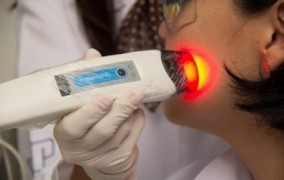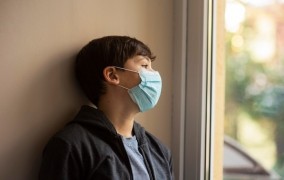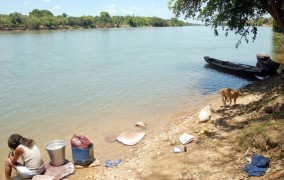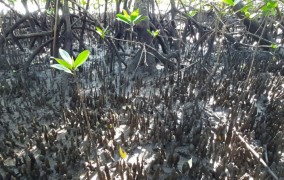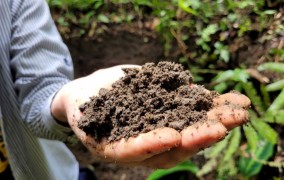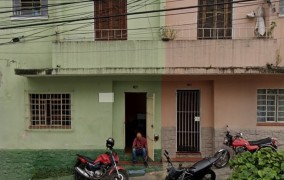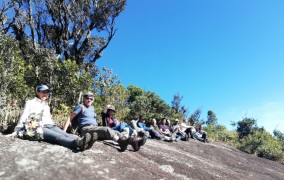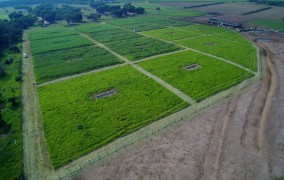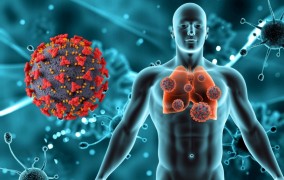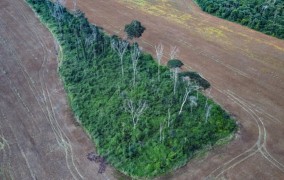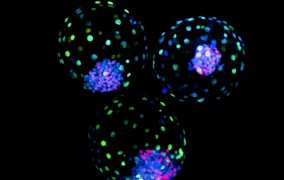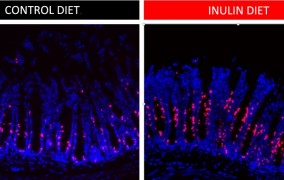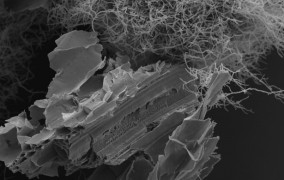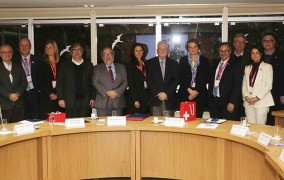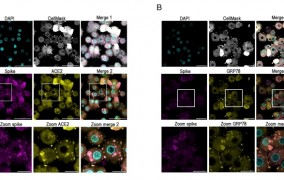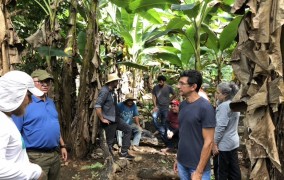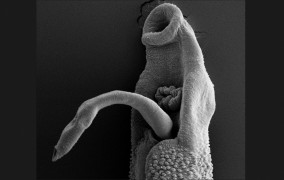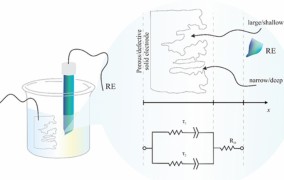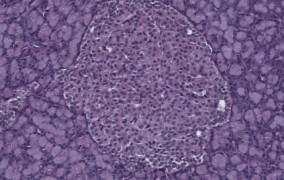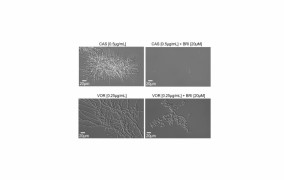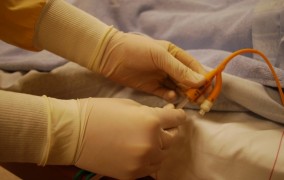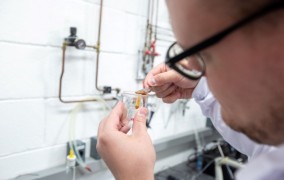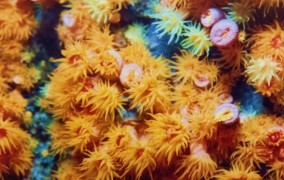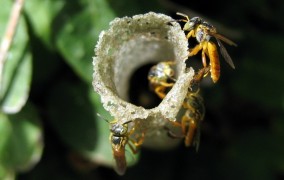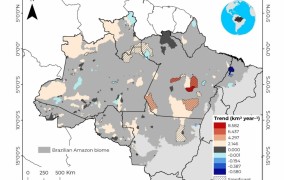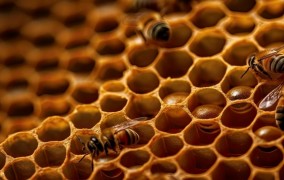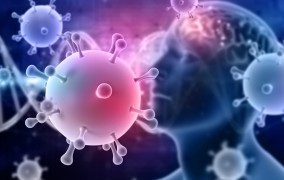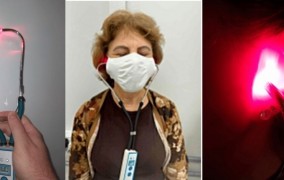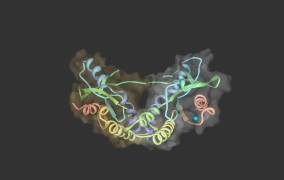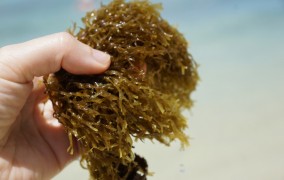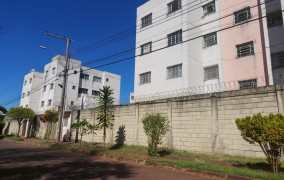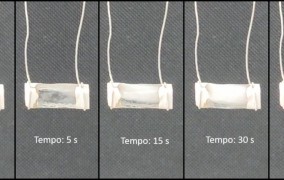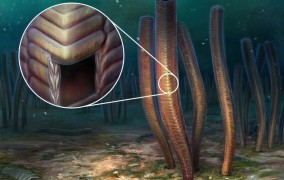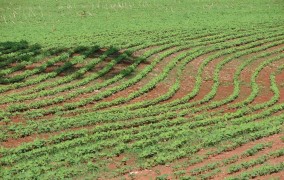
News
-
Innovation to treat skin cancer will be used by Brazil’s public health clinics
2023-08-09Photodynamic therapy developed by the Center for Research in Optics and Photonics, which is supported by FAPESP, has been recommended by Brazil’s federal body responsible for including novel healthcare technologies in the national health service. -
Exercise is beneficial even in a polluted environment, study shows
2023-08-09Researchers at the University of São Paulo analyzed inflammatory markers in cyclists who trained regularly and had been exposed to traffic-related pollution. The results of the experiment, which was conducted in São Paulo city, are published in the American Journal of Physiology. -
Cross-border consortium investigates long-term effects of pandemic on children and young adults
2023-08-09The aim of the study is to understand the strategies used by children and young people in low-income households to adapt to the public health crisis and economic hardship in the UK, South Africa and Brazil. -
Novel socio-environmental vulnerability index pinpoints sustainability issues in Brazilian river basins
2023-08-09The innovative approach highlights vulnerability to deforestation, fire and drought, as well as poverty. The results can help formulate public policies for sustainable development. -
Rare long-distance dispersal events help maintain genetic structure of mangroves
2023-08-09A study combining genetic analysis and oceanographic simulations showed that a species of mangrove rarely disperses very far, so that North and South Brazil have two distinct populations. The results can help prioritize conservation units and understand global patterns in mangrove forest formation. -
Luzio, who lived in São Paulo 10,000 years ago, was Amerindian like Indigenous people now, DNA reveals
2023-08-02An investigation covering four different parts of Brazil carried out analysis of genomic data from 34 fossils, including larger skeletons and the famous mounds of shells and fishbones built on the coast, and revealed differences between communities. An article on the study is published in Nature Ecology & Evolution. -
Amazon dark earth boosts tree growth as much as sixfold
2023-08-02Brazilian scientists analyzed the typical soil composition resulting from native management with the aim of developing biotech applications for more effective restoration of degraded areas. -
Three out of every ten meals ordered from the main food delivery app in Brazil come from dark kitchens
2023-08-02The first-ever study of dark kitchens conducted in Brazil collected data on 22,520 establishments located in three cities in São Paulo state and listed by iFood. An article on the study offers a profile of these delivery-only restaurants, which proliferated during the pandemic. -
Study proposes refinement of models to project ecosystem services in montane forests
2023-08-02Modeling projections depend on the installation of networks specific to these areas in Brazil and the Andes, where the available data falls far short of what is needed. -
Substitution of tolerant for sensitive species balances ecosystems in agricultural areas, study says
2023-08-02Research conducted in manipulated sugarcane plots showed that small water bodies such as ponds and puddles can contribute to sustainable farming even with environmentally hostile practices. -
Researchers explore strategies to convert CO2 into value-added products for industry
2023-08-02One of the goals of the study conducted by scientists at the Center for Development of Functional Materials and the Center for Innovation on New Energies is to reduce atmospheric emissions of this greenhouse gas. -
About Us
2023-08-01 -
Compound reduced inflammation in COVID-19-infected mice without compromising immune response to virus
2023-07-26A team affiliated with a FAPESP-supported research center showed in mice that molecules capable of preventing the peptide C5a from binding to its cellular receptor helped prevent lung damage and other complications typical of severe COVID-19. -
Degradation caused by human activities affects 38% of Amazon, study shows
2023-07-26An article in Science by 35 researchers affiliated with institutions in Brazil and elsewhere shows that carbon emissions resulting from forest degradation are equivalent to emissions from deforestation. The authors analyzed degradation due to fire, edge effects, illegal logging and extreme drought. -
Research with Brazilian participation is first to create models of bovine embryos
2023-07-26The results pave the way for breeding of cattle with selected traits. Preliminary work findings for human embryo models recently published by international groups could contribute to the understanding of congenital defects and early pregnancy loss. -
Consumption of soluble dietary fiber favors renewal of intestinal epithelial cells, study shows
2023-07-26In experiments conducted at the State University of Campinas (Brazil), intestinal epithelial stem cells proliferated more in mice fed an inulin-rich diet than in mice given insoluble fiber. The study also showed that the beneficial effects depended on interaction with gut microbiota. -
Researchers advance understanding of metabolic processes in fungi essential to 2G ethanol production
2023-07-26Scientists at Brazilian Center for Research in Energy and Materials (CNPEM) investigated enzymes produced by two species of fungus used to break down sugarcane bagasse for production of second-generation ethanol. The goal of the project is to increase the efficiency of this process, which currently depends on imported feedstocks. -
Visiting Swiss delegation advocates new partnerships with FAPESP
2023-07-26Similar programs and FAPESP’s pragmatism arouse interest in intensifying collaboration and joint calls for proposals involving research centers in Switzerland and São Paulo. -
SARS-CoV-2 infects liver, stimulating glucose production and contributing to severe form of COVID-19
2023-07-19A study conducted at the University of São Paulo and reported in PNAS explains hyperglycemia in hospitalized patients and shows how SARS-CoV-2 causes symptoms similar to those of diabetes. -
Interstate collaboration advocates economic alternatives to deforestation in Brazilian Amazon
2023-07-19Strategies for reconciling forest conservation and income generation for families living on Chico Mendes Extractive Reserve in Acre state are the focus of a project in which local scientists are collaborating with colleagues from the states of São Paulo and Pará. The project is part of the Amazon+10 Initiative. -
Brazilian coast is warmer and is having more frequent extreme temperature events, study shows
2023-07-19An article by scientists at the Federal University of São Paulo shows that the South and Southeast of Brazil are the most affected regions, and that Espírito Santo is the state most affected by waves of heat and cold. -
Novel targets identified for treatment of schistosomiasis
2023-07-19Researchers at Butantan Institute in São Paulo, Brazil, discovered that survival of the parasitic worm that causes the disease depends on expression of a specific type of RNA. In animal trials, inhibition of the molecule interrupted the infection. -
Biofuels are crucial to the energy transition, but misinformation must be overcome
2023-07-19The view was expressed by participants in a discussion on “Bioenergy’s major contribution to the energy transition” organized by the FAPESP Bioenergy Research Program. -
New theoretical model paves way for more efficient supercapacitors
2023-07-19The new model is capable of providing a realistic analysis of the experimental data for a supercapacitor in which internal energy losses are considered. -
Adipose tissue hormone protects cells that secrete insulin and reverses damage associated with obesity
2023-07-12Researchers at the University of São Paulo observed the effects of adiponectin in trials involving blood samples from lean and obese subjects. The discovery points to novel routes to treatment for type 2 diabetes and related dysfunctions. -
Novel compound combats drug-resistant fungi when combined with commercially available medications
2023-07-12Combinations of antifungals with brilacidin, a drug undergoing clinical trials for other diseases, cleared up lung infections in animals. On its own, the candidate drug treated a fungal disease of the cornea that affects millions of people worldwide. -
Brazilian scientists advance their understanding of the physics behind star superflares
2023-07-12Superflares release huge amounts of energy. If they occurred on our Sun, they would have a massive impact on Earth. The researchers studied two K-type stars and concluded that eruptions of this magnitude are due to their magnetic complexity. -
Besides yields, climate change reduces nutritional value of food crops
2023-07-12The warning was delivered by Marta Vasconcelos, a biologist affiliated with the Portuguese Catholic University, during the third event in the 2023 series of FAPESP Lectures. -
Mortality rate from Candida infections remains high in Brazil, despite therapeutic advances
2023-07-12A study conducted at the Federal University of São Paulo shows that 20% of patients with bloodstream infections are not treated, and at least half of those treated die. Diagnostic techniques must improve, the authors warn. -
Research group develops biodegradable film that keeps food fresh for longer
2023-07-12The material was designed by Brazilian researchers and includes a derivative of limonene from citrus rind, blended with chitosan, a biopolymer from exoskeletons of crustaceans. -
Study suggests resistance training can prevent or delay Alzheimer’s disease
2023-07-05Experiments involving mice and conducted by Brazilian researchers showed four weeks of training with weights to be sufficient to reverse behavioral and physical alterations characteristic of the disease. -
Compound produced by invasive marine coral eliminates parasite that causes Chagas disease
2023-07-05Trials involving mammalian cells were conducted by researchers in São Paulo state, Brazil. Although it endangers biodiversity along much of the coast, sun coral could be an ally in combating Chagas disease, which affects 7 million people worldwide and lacks effective treatment. -
Cigarette smoke and HPV have synergistic effects on cells, heightening the risk of head and neck cancer
2023-07-05The discovery was made by researchers affiliated with institutions in Brazil and Chile. Their analysis of oral cells that expressed human papillomavirus proteins and were exposed to cigarette smoke pointed to an increase in levels of an enzyme associated with tumor progression and DNA damage. -
Mites in stingless bee colonies increase bee survival rates even in the presence of insecticide
2023-07-05The study by Brazilian researchers showed that the microscopic arachnids rid stingless bee colonies of excessive fungi and serve as food for the larvae of these honey-making insects. -
Study shows Kant’s influence on Georges Canguilhem, who anticipated concepts current in medicine today
2023-07-05Contrary to the predominant view held since the eighteenth century, the French philosopher and physician saw the organism as a totality interacting with its environment rather than a mere aggregation of parts whose functioning depended only on the right amount of organic substances. -
Entrepreneurial training program helps startups become profitable businesses
2023-07-05A novel methodology used in the 24th edition of the PIPE High-Tech Entrepreneurial Training Program will guide 21 innovative startups in the process of developing customers and refining their business models, among other competencies. -
Deforestation in Indigenous Territories caused emission of 90 million metric tons of CO2 in 2013-21
2023-06-28Scientists analyzed data for the period from 232 Indigenous Territories in Brazil. Results published in Scientific Reports show deforestation rates accelerating between 2019 and 2021. -
Propolis improves immunity, reduces free radicals and attenuates chronic inflammation in HIV patients
2023-06-28A study of 40 asymptomatic subjects living with HIV conducted at São Paulo State University showed that a daily dose of 500 mg was safe and helped combat premature aging. -
COVID-19 sequelae are the highlights of a neuroscience conference at the State University of Campinas
2023-06-28Brazilian researchers analyzed data from MRI scans and various tests to detect biological alterations linked to the neurological symptoms most reported by patients, especially anxiety, depression, sleepiness and fatigue. The latest results were presented to the ninth edition of BRAINN Congress. -
FAPESP joins forces with France’s CNRS to bolster new International Panel on Ocean Sustainability
2023-06-28Soon to be officially launched, IPOS is a coalition of 16 research institutions, research funders and universities. Its mission will be to bridge the science-policy divide and help protect the world’s ocean environment. -
Laser therapy is most effective treatment for tinnitus, study finds
2023-06-28Brazilian researchers compared the therapies used most frequently for tinnitus, which affects some 750 million worldwide. -
Mechanical ventilator maker supported by FAPESP wins approval to start producing in the United States
2023-06-28The FDA has authorized Magnamed to operate a plant in Florida that will produce Oxymag, its portable emergency ventilator. -
Storm clusters are decreasing in the Amazon, study suggests
2023-06-21Scientists at the University of São Paulo have shown that the occurrence of mesoscale convective systems, which account for 40% of precipitation in the Amazon, is already being affected by climate change. -
Brazilian fossil provides earliest evidence of evolutionary trait that enabled dinosaurs to become giants
2023-06-21Bone cavities called air sacs appeared in the ancestors of long-necked dinosaurs about 225 million years ago, according to the analysis of a specimen found in Rio Grande do Sul state, South Brazil. The study also shows that air sacs did not evolve as linearly as scientists believe. -
Study identifies intracellular protein that can block inflammation in autoimmune diseases
2023-06-21The discovery, led by researchers at a FAPESP-supported center, could lead to novel treatments for autoimmune diseases. -
Green technology permits total use of seaweed by cosmetics industry
2023-06-21A review article goes beyond international standards to propose zero waste methodologies in the production of natural assets from marine organisms. -
Study proposes simple low-cost solutions to improve thermal comfort in social housing
2023-06-21As well as benefiting users, the aim was to contribute to energy saving and help reduce greenhouse gas emissions. -
Innovative technique obtains glass-ceramic materials faster and saves energy
2023-06-21The technique was developed at the Federal University of São Carlos (UFSCar) in São Paulo state, Brazil, and could impact the manufacturing of batteries, smartphone screens and other devices. -
A 540 million-year-old fossil of an articulated animal can change how we understand evolution
2023-06-14Carapace resembling scaled armor used by medieval knights appears to be first evidence of defense against predators and linked to origin of large group of animals with bilateral symmetry, which includes humans. Advanced techniques including electron microscopy and tomography applied to rocks found in Brazil in the 1970s enabled scientists to reconstruct this animal’s morphology. -
Conversion of 5% of pastureland to cropland could double biofuel production, study shows
2023-06-14The data, referring to Brazil, Argentina, Colombia and Guatemala, was presented by the FAPESP Bioenergy Research Program (BIOEN) during a seminar hosted by the International Energy Agency.
Most popular
-
Parents’ alcohol and drug use influences their children’s consumption, research shows
2026-02-13
-
Second spider-parasitic mite described in Brazil
2026-01-05
-
The ‘yo-yo effect’ impairs metabolism and reduces brown fat activity in women
2026-02-02
-
Study reveals protein linked to spread of pancreatic cancer through nerves
2026-01-14
-
Research shows how immune system reacts to pig kidney transplants in living patients
2026-01-08
-
Artificial saliva containing sugarcane protein helps protect the teeth of patients with head and neck cancer
2026-01-07
-
Study warns of nutritional risks of prolonged use of the drug omeprazole
2026-02-04
-
Brazilian research reveals how some types of breast cancer ‘evade’ treatment
2026-01-21
-
Advances in liquid biopsies as a tool for detecting lung cancer mutations
2026-01-07
-
Deadly to amphibians, a fungal strain emerged in Brazil and spread around the world
2026-01-14





